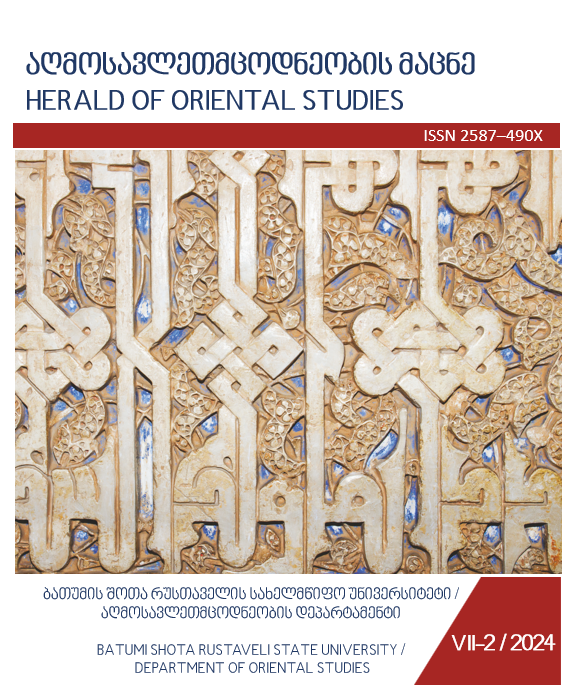Eastern policy of the Democratic Republic of Georgia: Relations with the North Caucasus (1918-1921)
DOI:
https://doi.org/10.61671/hos.7.2024.8276Keywords:
Democratic Republic of Georgia, Mountaineers Republic, Caucasus, Bolsheviks, Denikin, Confederation, Independence, Georgian LegionAbstract
This scientific article investigates the relationship between the Democratic Republic of Georgia and the North Caucasus, focusing on its distinctive characteristics during the period from 1918 to 1921. It also delineates the core principles that shaped this relationship.
In 1918, Georgia regained its independence amidst significant international and domestic challenges. The Mountaineers Republic, which encompassed much of the North Caucasus, also declared its independence. The nascent states faced opposition from a common enemy, first in the form of White Russia and subsequently from Bolshevik Russia. Both states recognized the strategic importance of consolidating their positions in the Caucasus to succeed in their shared struggle.
The Democratic Republic of Georgia emerged against the backdrop of severe political crises and territorial claims from neighbouring states, compounded by anti-state actions from the Bolsheviks within its borders. Consequently, a substantial portion of the government’s revenues was allocated to defence, creating significant financial challenges that impeded gradual reforms and the comprehensive development of the nation. However, Georgia recognized that the freedom of the North Caucasus was vital, as it would establish a defensive barrier against Russia and bolster the independence of the entire region. As a result, throughout its existence, the Georgian government consistently supported the Mountaineers Republic, providing both political and material resources. The interests of the mountaineers became so closely aligned with those of Georgia that they expressed a desire to join the Republic with the right to autonomy.
This research outlines the nature of political cooperation between Georgia and the North Caucasus, grounded in mutual needs and interests. In the context of the country's challenging circumstances, the sustained and multifaceted support for the North Caucasus underscores the significance of the northern neighbours’ freedom to the government of the First Republic of Georgia.
The article draws on archival documents, scholarly literature, and periodical press materials, with some sources and details being introduced in academic discourse for the first time.



































